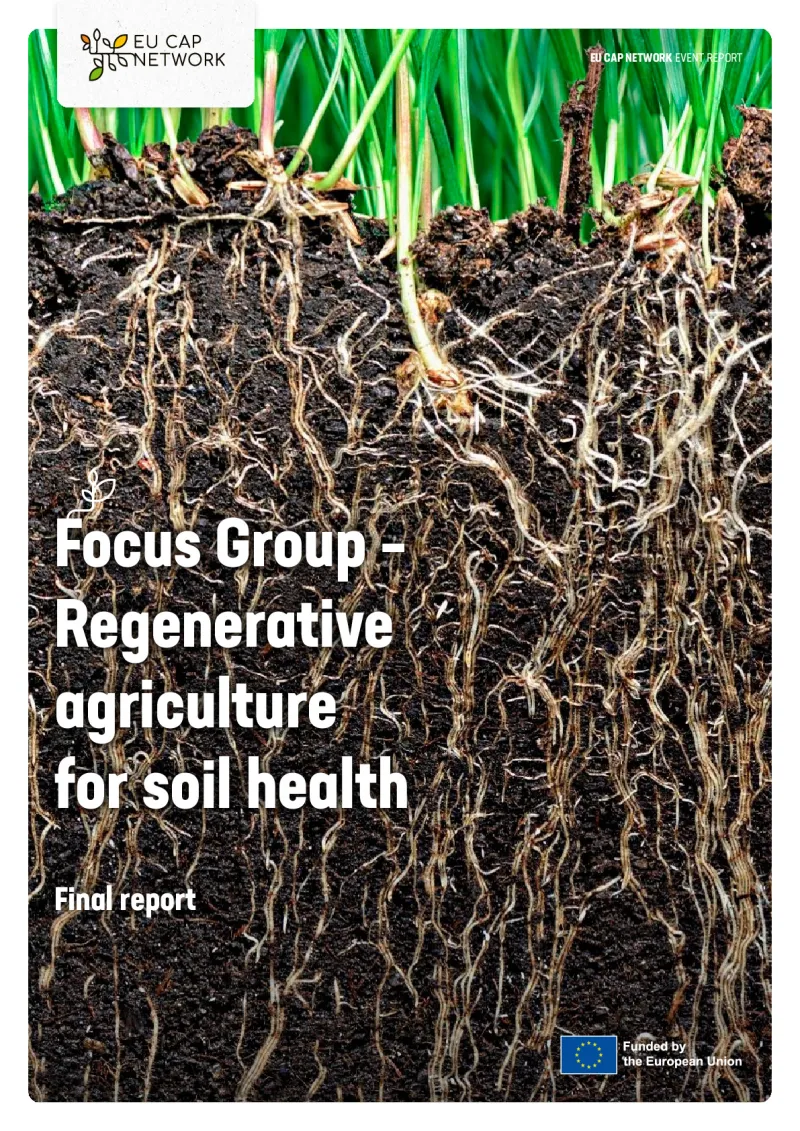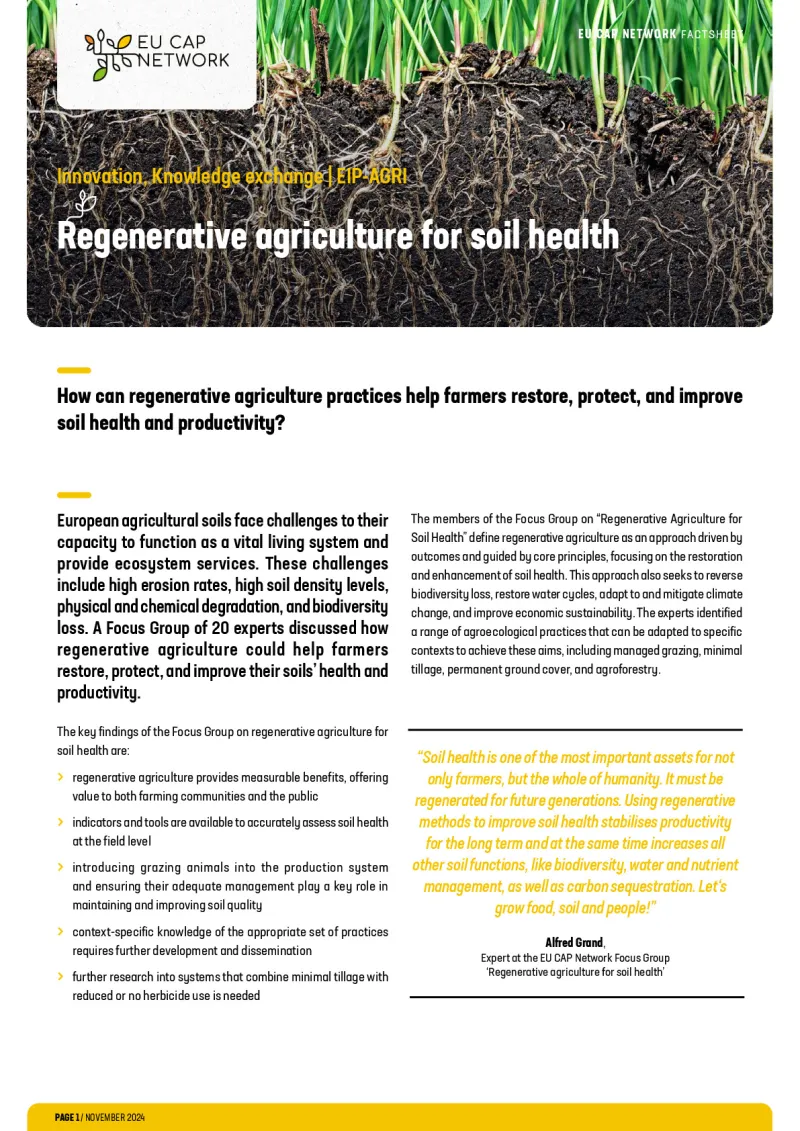EU CAP Network Focus Group ‘Regenerative agriculture for soil health'
This report presents the main results of the EU CAP Network Focus Group ‘Regenerative agriculture for soil health'.
- 2023-2027


In 2023-24, 20 experts from the EU CAP Network Focus Group 'Regenerative agriculture for soil health' worked on the question: “How can regenerative agriculture practices help farmers to restore, protect, and improve soil health and productivity?”
For the purpose of this Focus group, Regenerative Agriculture (RA) was defined as an outcomes- and principles-based approach to agriculture that prioritises soil health restoration and enhancement. It involves implementing practice systems adapted to local contexts. By restoring soil health, regenerative agriculture also aims to:
- reverse biodiversity losses;
- restore well-functioning water cycles;
- adapt to and mitigate climate change,
- increase economic profitability.
Given that restoration is a process, there are no “regenerative farms” per se, but rather farms at various stages of the restoration process.
The degradation of soil health, including wind and water erosion and loss of soil organic matter, necessitates RA. RA employs a combination of diverse farming practices: managed grazing, improved manure management, agroforestry, minimal tillage, permanent soil cover, crop diversification, soil amendment, and biostimulation, tailored to specific contexts. Systems such as regenerative market gardening in vegetable production, or organic no-till arable production, emerge from these combinations. To scale RA in Europe, advocates must overcome several challenges. They need to ensure farmers have access to relevant knowledge, tools and machinery, foster a mindset change in the food and agriculture sectors and beyond, provide financial support for farmers’ transitions, and address new climate conditions.
To aid in overcoming these challenges, the focus group explored five critical areas for RA success in Europe:
- the role of animal husbandry in RA,
- education reform and knowledge dissemination,
- outcomes and indicators for RA,
- value creation through RA,
- systemic integration of practices.
The Focus Group identified several research needs from practice, such as developing a practical soil health indicator set responsive to management practices and production performances in different contexts. Other suggestions included assessing RA’s impact on climate, integrating effects on the micro-climate and small water cycles, plant protection through soil health management, plant microbiome and mineral nutrition management, and optimising and evaluating cover crop management practices. The Focus group also proposed innovative ideas to further develop RA through Operational Groups, such as characterizing which sets of practices perform well in specific contexts, or developing minimal or no-till systems that perform well without herbicides. Other suggestions included developing tools to monitor soil health indicators on farms, developing high-performing intercropping systems in different contexts, and creating easy-to-use solutions to integrate grazers into crop-producing farms.
Author(s)
EU CAP Network

